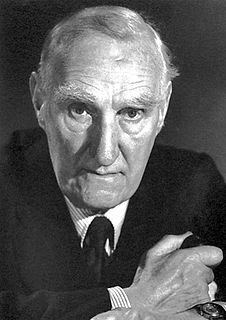A Quote by Eric Schmidt
If you look at the history of technology over a couple hundred years, it's all about time compression and making the globe smaller. It's had positive effects, all the ones that we know. So we're much less likely to have the kind of terrible misunderstandings that led to World War I, for example.
Related Quotes
All of human history is about the going from sudden fat years to the sudden lean years. We've always had good times and bad, and we've had ways of managing the bad times. We have ways of insulating ourselves, making ourselves less sensitive for the bad times by having things like grain stores, for example. Pretty much every civilization that's lasted for any reasonable length of time has some food management principles behind it. But what's been happening over the past thirty years is it's failed - the insurance policy.
I think, actually, that it's a really fascinating time in history because the development of modern technology and the photographs the satellites were taking from space were mapping the earth in a new way, making us feel like the globe we inhabit is much smaller than previously conceived of, in the human mind.
For 40 years we were led to think of the Russians as godless, materialistic and an evil empire. When the Cold War ended, we suddenly discovered that Russia was a poor Third World country. They had not been equipped to take over the world. In fact, they were just trying to improve a miserable standard of oppressive living, and couldn't. They had to spend too much on arms build-up. We didn't win the Cold War; we bankrupted the Russians. In effect, it was a big bank exhausting the reserves of a smaller one.
I did not know much history when I became a bombardier in the U.S. Air Force in World War II. Only after the War did I see that we, like the Nazis, had committed atrocities... Hiroshima, Nagasaki, Dresden, my own bombing missions. And when I studied history after the War, I learned from reading on my own, not from my university classes, about the history of U.S. expansion and imperialism.
We're the highest taxed nation in the world. Our middle class is just reeling from the taxes. And you know, if you think about it, the middle class and the workers of this country, who really built the country, they haven't had a raise in 12 years. They're making less now actually - to be even worse about it, they're making less now than they did 12 years ago.
In a few hundred years, when the history of our time will be written from a long-term perspective, it is likely that the most important event historians will see is not technology, not the Internet, not e-commerce. It is an unprecedented change in the human condition. For the first time - literally - substantial and rapidly growing numbers of people have choices. For the first time, they will have to manage themselves. And society is totally unprepared for it.
Some kids win the lottery at birth; far too many don't - and most people have a hard time catching up over the rest of their lives. Children raised in disadvantaged environments are not only much less likely to succeed in school or in society, but they are also much less likely to be healthy adults.
In 1980 we declared the globe free of smallpox. It was the largest campaign in United Nations history until the Iraq war. A hundred and fifty thousand people from all over the world, doctors of every race, religion, culture and nation, who fought side by side, brothers and sisters, with each other, not against each other, in a common cause to make the world better.


































